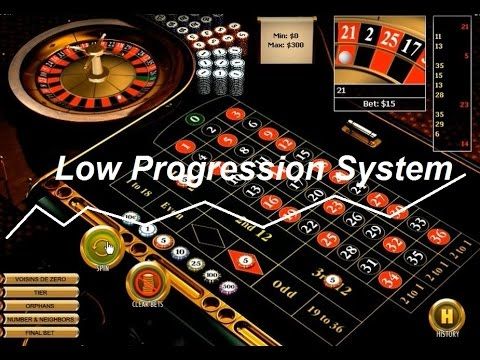Roulette Betting Systems: Do They Really Work?
Roulette is one of the most popular casino games in the world. Its simplicity and the potential for big wins have
attracted countless players over the years. As the game relies heavily on chance, people have always sought ways to
maximize their chances of winning. This has led to the development of various roulette betting systems. But do these
systems really work?
The Martingale System
One of the most well-known betting systems in roulette is the Martingale system. According to this strategy, you
need to double your bet every time you lose until you eventually win. The idea is that when you do win, you will
recover all your previous losses and make a profit. While this system may seem logical on the surface, it has some
limitations.
Firstly, it requires a substantial amount of money to implement properly. If you encounter a long losing streak,
you may quickly reach the table’s betting limit, making it impossible to double your bet anymore. Additionally, even
if you have an unlimited bankroll, there is no guarantee that you will eventually win. Roulette is a game of pure
chance, and each spin is independent of the previous one. Therefore, past outcomes do not influence future outcomes.
The Martingale system does not change this fundamental principle.
The D’Alembert System
Another popular betting system is the D’Alembert system. With this strategy, you increase your bet by one unit
after a loss and decrease it by one unit after a win. The idea is that you can slowly recover from losses while
making a small profit. While this system is less risky, it still relies on the assumption that past outcomes can
affect future outcomes, which is not true in roulette.
Moreover, the D’Alembert system does not guarantee long-term profitability. Even if your wins surpass your losses
initially, you are still susceptible to encountering losing streaks. Over time, the small profit you accumulate may
be wiped out by several consecutive losses, leaving you with a net loss.
The Fibonacci System
The Fibonacci system is based on the famous Fibonacci sequence, where each number is the sum of the two preceding
ones: 1, 1, 2, 3, 5, 8, 13, and so on. In roulette, this system tells you to bet the sum of the two previous bets.
For example, if your first bet is $5, your second bet will be $5, and if you lose again, your third bet will be $10,
and so on.
While this system may seem appealing due to its simplicity, it suffers from the same flaws as the previous systems.
It assumes that past outcomes can influence future outcomes, which is not the case in roulette. Each spin is
independent, and previous numbers have no impact on future ones. Additionally, like other progressive betting
systems, it requires a significant bankroll to sustain prolonged losing streaks.
The Bottom Line
Unfortunately, no betting system can guarantee consistent wins in roulette. The game is purely based on chance,
making it impossible to predict the outcome of each spin. Whether you use the Martingale, D’Alembert, or Fibonacci
system, these strategies do not alter the odds of the game or provide any real advantage over the casino.
That being said, some players still use these betting systems for entertainment purposes or to add a sense of
strategy to their gameplay. They may enjoy the thrill of doubling their bets or gradually increasing them. However,
it’s crucial to approach these systems with the understanding that they do not guarantee wins or improve the chances
of winning in the long run.
In conclusion, while roulette betting systems may seem enticing, they are ultimately ineffective in altering the
game’s outcome. If you truly want to increase your chances of winning in roulette, it’s best to focus on strategies
like proper bankroll management, understanding the odds, and knowing when to quit. Remember, in gambling, the house
always has an edge, and no system can change that fact.
